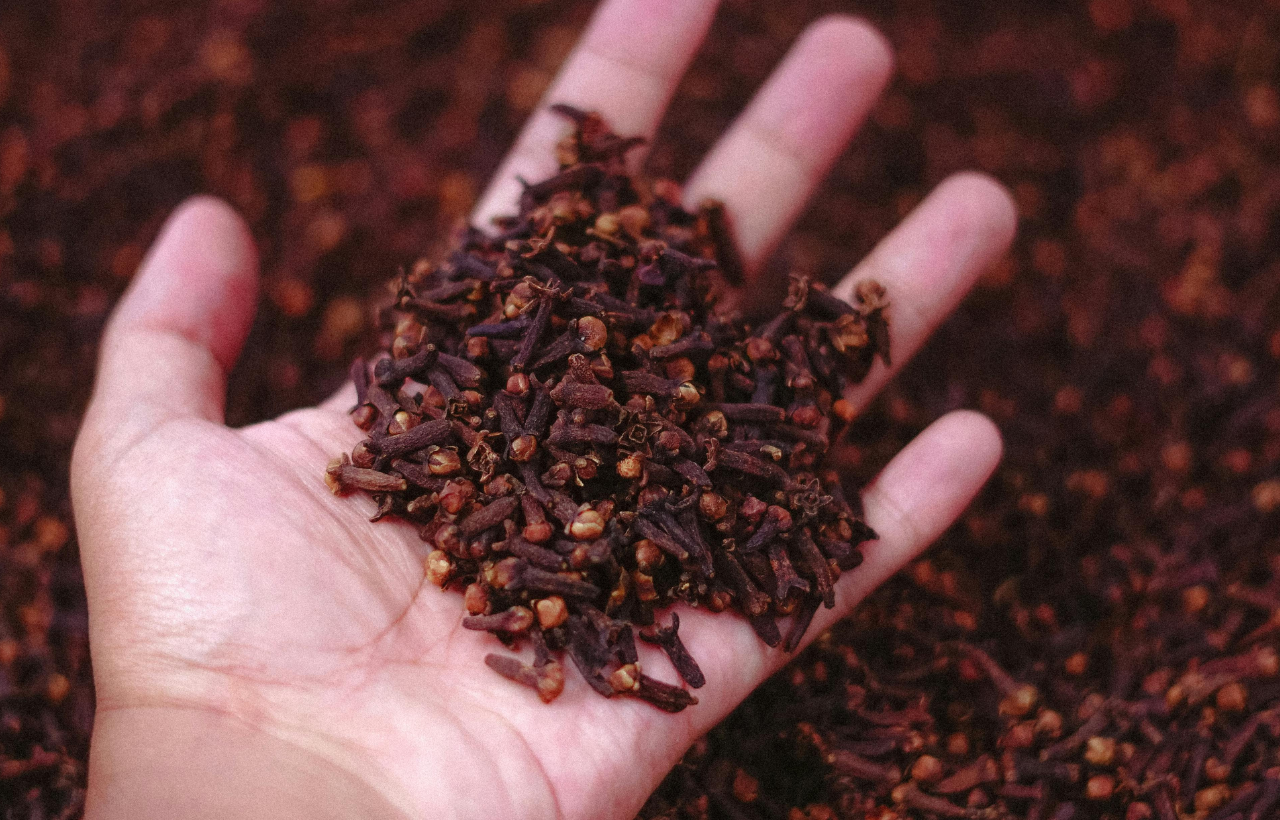Now Reading: 7 Extraordinary Uses for Clove Oil: Nature’s Powerful Remedy
- 01
7 Extraordinary Uses for Clove Oil: Nature’s Powerful Remedy

7 Extraordinary Uses for Clove Oil: Nature’s Powerful Remedy
Have you ever experienced a sudden toothache with no dentist in sight? Or perhaps you’ve struggled with stubborn kitchen odors that just won’t fade? The solution might be hiding in a tiny bottle of clove oil. This potent natural extract, derived from the flower buds of the Syzygium aromaticum tree, has been treasured across cultures for centuries—not just for its distinctive aroma, but for its remarkable healing properties. From ancient Chinese medicine to modern American households, clove oil continues to prove itself as one of nature’s most versatile remedies.
What Is This Ancient Remedy?
The essential oil extracted from clove is derived from the dried flower buds of the Syzygium aromaticum tree, native to Indonesia but now cultivated worldwide. This extract contains eugenol, a compound responsible for most of its therapeutic benefits. With its warm, spicy scent and powerful antiseptic, analgesic, and anti-inflammatory properties, this aromatic essence has earned its place in both traditional medicine cabinets and contemporary wellness routines.
1. Dental and Oral Health Applications
Natural Toothache Relief
Perhaps the most well-known use of this spice-derived extract is for dental pain relief. Dr. Sarah Johnson, a practicing dentist in Boston, explains: “Eugenol acts as a natural anesthetic. When applied to an aching tooth, it can provide temporary but significant pain relief while the patient arranges proper dental care.”
To use this natural remedy for toothache:
- Apply 1-2 drops of diluted solution to a cotton ball
- Gently place it against the affected tooth or gum area
- Replace as needed until you can see a dentist
Combating Bad Breath
The antimicrobial properties of this essential extract make it effective against halitosis. Studies show that the active compounds can kill the bacteria responsible for oral odors, providing a natural alternative to commercial mouthwashes.
Gum Health Support
The anti-inflammatory properties of this botanical extract can help reduce gum inflammation and fight gingivitis. Regular use in diluted mouthwash form may contribute to healthier gums and prevent periodontal disease.
2. Skin Care Benefits
Acne Treatment
The antibacterial properties of this aromatic essence make it a promising natural remedy for acne. When properly diluted (never use it undiluted on skin), it can help reduce breakouts by eliminating bacteria that cause acne.
Anti-Aging Properties
Rich in antioxidants, this natural extract helps fight free radicals that contribute to skin aging. Some skincare enthusiasts incorporate diluted forms into their routines to maintain youthful skin and reduce the appearance of fine lines.
Scar Reduction
Preliminary research suggests that the regenerative properties of this botanical remedy may help reduce the appearance of scars when applied consistently over time.
3. Pain Management and Relief
Muscle and Joint Pain
The warming effect and anti-inflammatory properties of this spice essence make it valuable for muscle and joint pain relief. When mixed with a carrier oil and massaged into sore areas, it increases circulation and reduces inflammation.
Headache Relief
For tension headaches, diluted essential extract applied to the temples can provide relief. The analgesic properties help reduce pain, while its warming sensation increases blood flow to the area.
4. Household and Practical Uses
Natural Insect Repellent
Insects generally dislike the strong aroma of this botanical oil. Diffusing it or creating a spray with water and a few drops can help keep mosquitoes, ants, and flies at bay without the harmful chemicals found in commercial repellents.
Food Preservation
Historically, this spice was used to preserve food, and modern research confirms this traditional wisdom. The antimicrobial properties can extend the shelf life of certain foods, making it a natural food preservative.
Cleaning and Deodorizing
Mix a few drops of this aromatic extract with water and vinegar for a natural, pleasant-smelling cleaning solution that also disinfects surfaces. Its strong scent also makes it excellent for eliminating cooking odors in the kitchen.
5. Immune System Support
Antioxidant Protection
This essential oil contains powerful antioxidants that help neutralize free radicals in the body. Regular, appropriate use may contribute to overall cellular health and immune function.
Respiratory Support
The expectorant properties of this botanical remedy can help clear congestion during colds or respiratory infections. Adding a few drops to a diffuser or steam inhalation may provide relief from coughs and congested airways.
6. How to Choose Quality Products
Not all essential extracts are created equal. For therapeutic benefits, look for:
- 100% pure, therapeutic-grade oil
- Dark amber glass bottle (protects oil from light degradation)
- Organic certification when possible
- Cold-pressed extraction method
- “Syzygium aromaticum” listed as the source
7. Safety Precautions and Proper Usage
While this potent essence offers many benefits, it’s extremely potent and should be used with caution:
- Always dilute with a carrier oil before applying to skin (typically 1-2 drops per tablespoon of carrier oil)
- Perform a patch test before widespread use
- Keep away from eyes, inner ears, and sensitive mucous membranes
- Not recommended for use during pregnancy without medical supervision
- Store out of reach of children and pets
- Discontinue use if irritation occurs
The Future of Clove Oil Research
The scientific community continues to explore the potential benefits of this botanical extract. Recent studies are investigating its effectiveness against antibiotic-resistant bacteria and its potential role in managing diabetes by helping regulate blood sugar levels.
According to Dr. Michael Chen, pharmacologist at the University of California, “The compounds in this essential oil show promising activity against several pathogenic organisms. As we face increasing antibiotic resistance globally, natural compounds like those found in clove oil may offer new approaches to treatment.”
Conclusion
From soothing toothaches to repelling insects, clove oil stands as one of nature’s most versatile essential oils. Its combination of analgesic, antimicrobial, and anti-inflammatory properties makes it valuable for numerous applications in health, beauty, and household use. While modern medicine continues to validate many of its traditional uses, this botanical remedy remains accessible to anyone seeking natural alternatives for common ailments.
As you explore the benefits of this powerful oil, remember that its potency demands respect and proper dilution. When used correctly, clove oil can be an invaluable addition to your natural wellness toolkit.
Disclaimer: The information provided in this article is intended for educational and informational purposes only. It is not a substitute for professional medical advice, diagnosis, or treatment. Always seek the advice of your physician or other qualified health provider with any questions you may have regarding a medical condition or before beginning any new health regimen. Never disregard professional medical advice or delay seeking it because of something you have read in this article.











